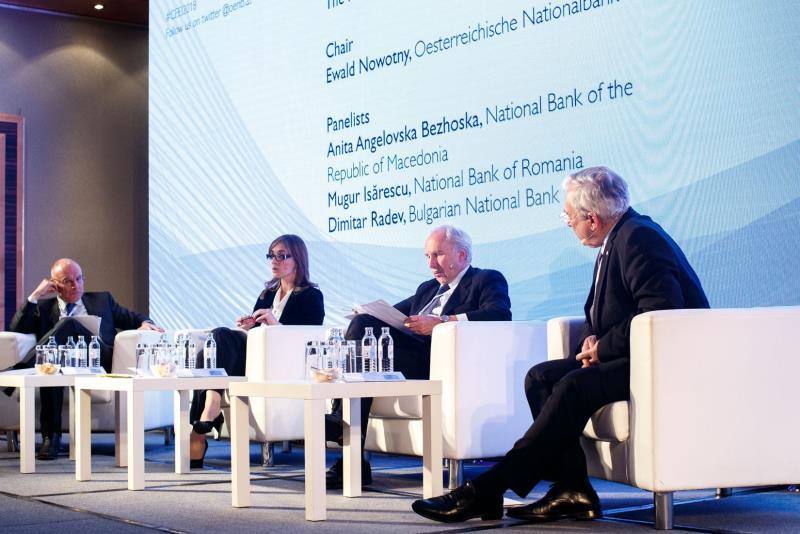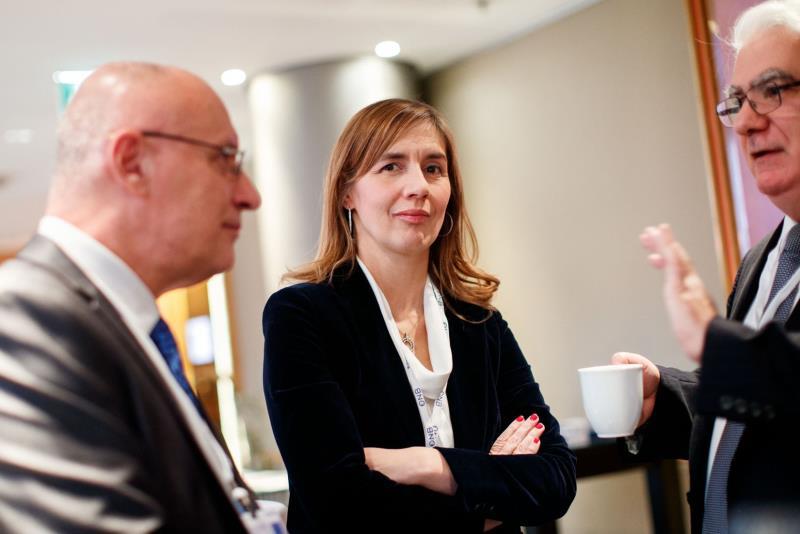"Despite the pronounced accommodation policy in the post-crisis period, the real convergence in the countries of the Central and Southeastern Europe region has slowed down, suggesting that monetary policy cannot be a substitute for sound structural policies which are necessary for increasing the potential for long-term growth of the economies.“ - the Governor of the National Bank of the Republic of Macedonia, Anita Angelovska Bezhoska emphasized at the panel discussion on the role of monetary policy in the process of real convergence of the economies of Central, Eastern and Southeastern Europe (CYCEE) towards those of the eurozone, which was held within this year's Conference on European Economic Integration, organized by the Austrian Central Bank.
In her speech at the panel discussion, NBRM Governor gave a longer-term review on the region's real convergence, highlighting its slowdown in the post-global economic and financial crisis. She pointed to the constant monetary easing in the post-crisis period, pointing out the support that central banks gave to economic growth, by lowering the interest rates and by providing additional liquidity.
Among other things, Governor Angelovska Bezoska emphasized that the role of monetary policy should primarily refer to the prevention of vulnerabilities in the economy and the maintenance of price and financial stability, as necessary prerequisites for faster growth. In her presentation, she emphasized the gradual depletion of possibilities for the functioning of monetary and fiscal policy and the need for continuous implementation of structural and institutional reforms that would enable faster and sustained convergence.

In the debate with the central bank governors of Romania and Bulgaria, who also took part in the panel discussion, the experiences and challenges in the process of real convergence of countries in the region were discussed. In this context, the role of the monetary policy, whose focus should remain on the nominal convergence of economies, was accentuated as an important condition for increasing the potential of economic growth. The discussion also covered matters about different experiences of countries, depending on the chosen monetary strategy, as well as the main challenges in the context of initiated global cycle of interest rates growth. Finally, emphasis was placed on discussions about public support in Romania and Bulgaria as European Union member states for the adoption of the Euro, which means meeting a number of criteria, including undertaking reforms to align requirements in the domain of supervision and simultaneously, inclusion of these countries in the exchange rates mechanism, as well as in the single banking union.
The Conference on European Economic Integration that was held in Vienna, Austria for the past two days, is one of the most significant traditional events in the central banking community that discusses key issues for the European economy. This year Conference was thematically dedicated to the possibility of financial flows to help the European Union in promoting economic, social and territorial cohesion and solidarity among member states and in Europe, in general.
The NBRM Governor, who was among the speakers at the Conference, was also the only high representative of an institution of a non-EU country, as part of her involvement in this important event, took active participation in the discussion on other issues important for the European economy, which were opened within several conference sessions.
In Vienna, the Governor Angelovska Bezoska also held several bilateral meetings with governors and other senior representatives of several central banks, professors and researchers at renowned universities and research centers, as well as representatives of several international financial institutions and organizations. Her participation in the Conference on European Economic Integration is a confirmation that the NBRM not only successfully paves the way to the European System of Central Banks, but is also an active participant and contributor to the discussion on key issues for the European central banking community and economy.
